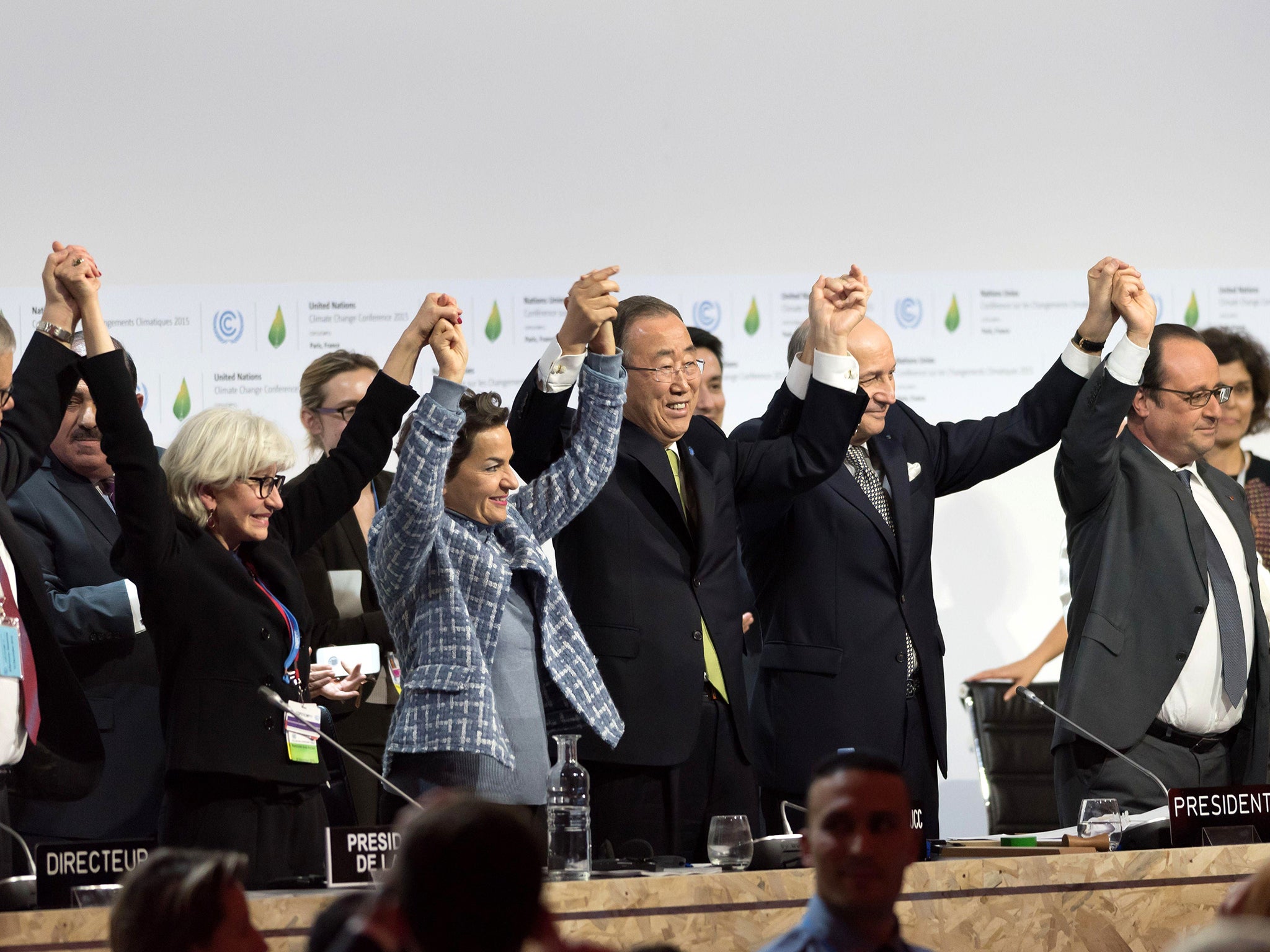COP21: The Paris climate deal is our best chance to save the planet - but every nation needs to support it
This is a challenge that must be met with every tool at our disposal

Your support helps us to tell the story
From reproductive rights to climate change to Big Tech, The Independent is on the ground when the story is developing. Whether it's investigating the financials of Elon Musk's pro-Trump PAC or producing our latest documentary, 'The A Word', which shines a light on the American women fighting for reproductive rights, we know how important it is to parse out the facts from the messaging.
At such a critical moment in US history, we need reporters on the ground. Your donation allows us to keep sending journalists to speak to both sides of the story.
The Independent is trusted by Americans across the entire political spectrum. And unlike many other quality news outlets, we choose not to lock Americans out of our reporting and analysis with paywalls. We believe quality journalism should be available to everyone, paid for by those who can afford it.
Your support makes all the difference.Euphoria is easy. And in the case of the climate change accord signed in Paris, it is also justified. After the false dawn of Kyoto and the fiasco of Copenhagen, the world has begun to get its act together. Bravo, world.
But only just, and only just in time. And while we belong to a country that can claim to be in the forefront not only of carbon emissions themselves – our gift to the world, you might say, via the industrial revolution – but also of the science for understanding what they do to the ecosphere, Britain is also the country whose government chose the weeks leading up this crucial summit to signal that, if the price isn’t right, it will gladly give up the fight.
Anthropogenic carbon emissions can be reduced by simply reducing them. You replace carbon dioxide-emitting power stations with facilities that harness renewable energy sources to do the same job; plant more forests to absorb the carbon; and, because neither of these will be sufficient, develop carbon capture and storage (CCS) systems to bag the CO2 that continues to be pumped out before it reaches the atmosphere, and bury it deep underground.
Given the dramatically more challenging target embraced at Paris, to keep global temperature rises to less than two, and if possible less than 1.5C, CCS, though in its infancy, will become vital if the summit is to be crowned by success. In that context, look at our government’s bizarre flip-flop.
Earlier this year it committed £1bn to a competition to develop practical CCS systems. Six months on – weeks before the start of the Paris summit – it dropped the idea. Luke Warren, chief executive of the Carbon Capture and Storage Association, labelled the decision “just incredible”. The contest had been under way for four years and approaching a conclusion. “Moving the goalposts when a four-year competition is about to conclude is an appalling way to do business,” he added. We can only agree.
Sadly, the decision was typical of a government addicted to public relations and with a dysfunctional moral compass and strategic myopia. It can’t decide if it is the greenest government ever or if green, given enough moaning in the shires, is crap. So instead of being in the forefront of the most important and hopeful revolution in technology since the smoke began spewing out of British chimneys, we will be dragged along in its wake.
But dragged along we will be. What the achievement of Paris recognises is that there is no escape from the urgent need to change our ways. The reality of climate change has been borne out by so many catastrophes in recent decades – destructive hurricanes, floods, desertification, melting ice caps, rising sea levels – that it is no longer possible to ignore the impact on human populations. Low-lying countries such as the Maldives already stare doom in the face.
Climate Central, a research organisation, calculates that if temperatures rise by 2C – the summit’s original target – 280 million people may eventually lose the land they stand on to rising seas. Even if the lower target is met, that figure will come down only to 137 million. And a great many of them will be heading our way. The present refugee crisis will, in comparison, appear quite manageable.
This is a challenge that must be met with every tool at our disposal. In the words that President Jimmy Carter used nearly 40 years ago to describe the US energy crisis, it is “the moral equivalent of war”. Somebody please remind Mr Cameron of that fact.
Join our commenting forum
Join thought-provoking conversations, follow other Independent readers and see their replies
Comments